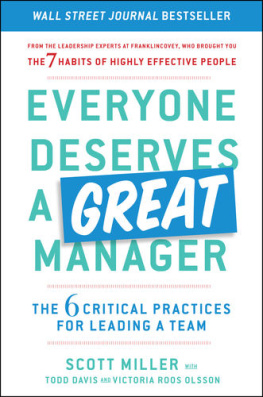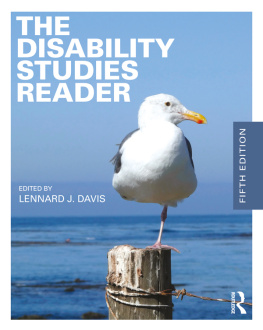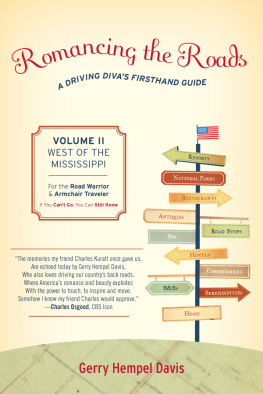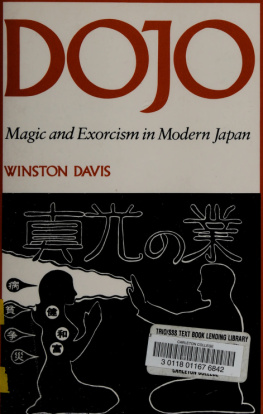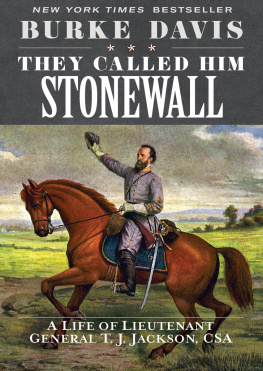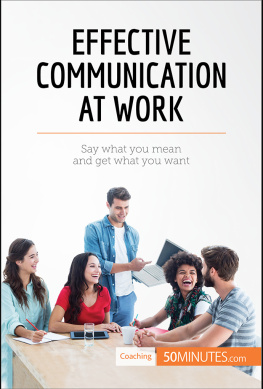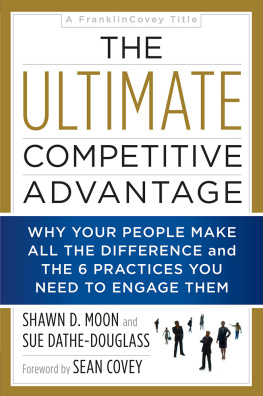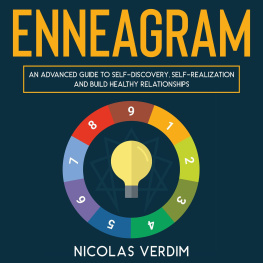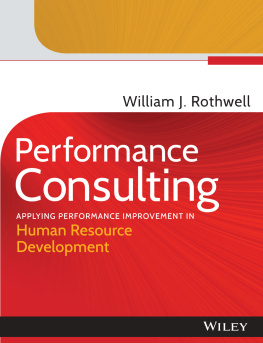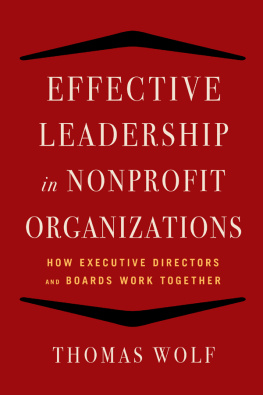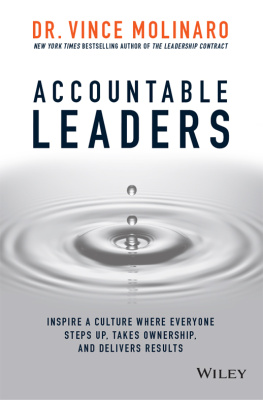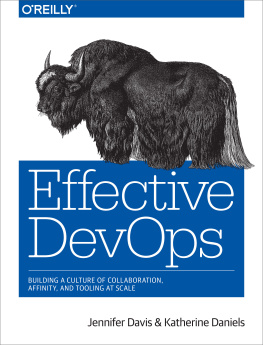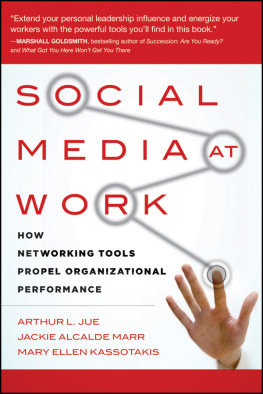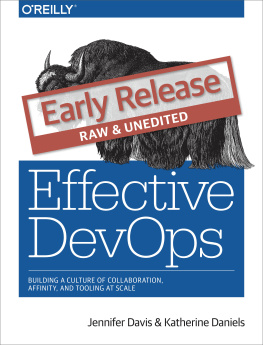Davis - Get better: 15 proven practices to build effective relationships at work
Here you can read online Davis - Get better: 15 proven practices to build effective relationships at work full text of the book (entire story) in english for free. Download pdf and epub, get meaning, cover and reviews about this ebook. City: New York, year: 2017, publisher: Simon & Schuster Audio, genre: Home and family. Description of the work, (preface) as well as reviews are available. Best literature library LitArk.com created for fans of good reading and offers a wide selection of genres:
Romance novel
Science fiction
Adventure
Detective
Science
History
Home and family
Prose
Art
Politics
Computer
Non-fiction
Religion
Business
Children
Humor
Choose a favorite category and find really read worthwhile books. Enjoy immersion in the world of imagination, feel the emotions of the characters or learn something new for yourself, make an fascinating discovery.
- Book:Get better: 15 proven practices to build effective relationships at work
- Author:
- Publisher:Simon & Schuster Audio
- Genre:
- Year:2017
- City:New York
- Rating:4 / 5
- Favourites:Add to favourites
- Your mark:
- 80
- 1
- 2
- 3
- 4
- 5
Get better: 15 proven practices to build effective relationships at work: summary, description and annotation
We offer to read an annotation, description, summary or preface (depends on what the author of the book "Get better: 15 proven practices to build effective relationships at work" wrote himself). If you haven't found the necessary information about the book — write in the comments, we will try to find it.
Davis: author's other books
Who wrote Get better: 15 proven practices to build effective relationships at work? Find out the surname, the name of the author of the book and a list of all author's works by series.
Get better: 15 proven practices to build effective relationships at work — read online for free the complete book (whole text) full work
Below is the text of the book, divided by pages. System saving the place of the last page read, allows you to conveniently read the book "Get better: 15 proven practices to build effective relationships at work" online for free, without having to search again every time where you left off. Put a bookmark, and you can go to the page where you finished reading at any time.
Font size:
Interval:
Bookmark:


Simon & Schuster
1230 Avenue of the Americas
New York, NY 10020
www.SimonandSchuster.com
Copyright 2017 by Franklin Covey Co.
Some names and identifying characteristics have been changed.
All rights reserved, including the right to reproduce this book or portions thereof in any form whatsoever. For information, address Simon & Schuster Subsidiary Rights Department, 1230 Avenue of the Americas, New York, NY 10020.
First Simon & Schuster hardcover edition November 2017
SIMON & SCHUSTER and colophon are registered trademarks of Simon & Schuster, Inc.
For information about special discounts for bulk purchases, please contact Simon & Schuster Special Sales at 1-866-506-1949 or .
The Simon & Schuster Speakers Bureau can bring authors to your live event. For more information or to book an event, contact the Simon & Schuster Speakers Bureau at 1-866-248-3049 or visit our website at www.simonspeakers.com.
Cover and interior design by The Creative Lab at FranklinCovey
Library of Congress Cataloging-in-Publication Data is available.
ISBN 978-1-5011-5830-8
ISBN 978-1-5011-5832-2 (ebook)
Bob Whitman
Chairman and CEO
FranklinCovey is a global company specializing in performance improvement. We help organizations achieve results that require a change in human behavior. So how easy is it to change behavior? Just think about how difficult it can be to change your own attitudes and behavior, let alone changing the behavior of someone else, or lots of someone elses!
In authoring Get Better: 15 Practices to Build Effective Relationships at Work , Todd Davis makes the compelling case that the key to improving our effectiveness, relationships, and results is to begin getting better ourselves by focusing first on improving our own paradigms and behaviors. As we do, we increase our ability to influence those around us for good, starting with the important relationships in our personal and professional lives.
Why put a priority on strengthening our effectiveness in building our key relationships? Because the strength of our relationships is the foundation for the culture we establish in both our work and in our personal lives. This culture, in turn, drives everything else. Everything gets better, becomes more effective, and is more meaningful when our key relationships, both at work and in our private lives, are rich and effective.
Think about it. Without excellent customer relationships, what happens to your business? Everything slows down or stops. Without excellent employee relationships, what happens? Battles break out and productivity implodes. Without excellent personal relationships, what happens? Your entire life is less happy and fulfilling.
Most organizations state, People are our greatest asset. While he believes firmly that people are indeed any organizations most important asset, Todd takes us beyond this discussion when he suggests that its not only people, but the nature of relationships between and among people that truly establishes our competitive advantage.
Its true. Over the past decade, Franklin Covey has studied the outcomes achieved by the tens of thousands of operating units in thousands of companies. One study revealed that the factors which accounted for the biggest differences between the results achieved by the highest-performing units and those achieved by their lesser-performing counterparts was fundamentally the quality of their relationships with both customers and employees. Those units having the best and most effective relationships with their customers and employees, as measured by customer loyalty and employee-engagement levels, significantly outperformed those units with just average customer-employee relationships.
FranklinCovey was founded decades ago on the premise that great organizations are built on the foundation of great relationships with all key stakeholders. Beginning with the publication of the award-winning The 7 Habits of Highly Effective People , and continuing with the best-selling The Speed of Trust, The 4 Disciplines of Execution, and The 5 Choices to Extraordinary Productivity, the company has focused on unleashing human potential through world-class content, insights, and training. You will find FranklinCoveys works on the bookshelves of corporate leaders in every country on every continent.
Todd Davis has a deep well of wisdom on the topic of relationships. As the longtime chief people officer at FranklinCovey, a company that specializes in achieving lasting behavioral change, hes a unique guide to have on the subjects of relationships and continuous improvement. He is a vital spokesman on the topic of those universal principles of human and organizational effectiveness we stand for; beyond that, he is a living, breathing example of how to practice those principles.
In this book, Todd describes some of the most common stumbling blocks over which many of us trip at one time or another: blaming others for our problems, focusing on the urgent but not important things, jumping to a solution before we even understand the problem, and so forth. In his wisdom, he also provides simple but practical ways to avoid those relationship stumbling blocks and get better at whatever we do.
In so many ways, Todd has demonstrated that the strength of our relationships is our most important asset, and that our relationships with each other are not only the means to our success but also the most enduring reward for our success.
One of FranklinCoveys most important objectives and values is to become the workplace of choice for achievers with heart. As CEO, I have depended on Todds wisdom and experience to attract and retain the best talent to be found. I have marveled at his sensitivity as a counselor and coach to our thousands of employees.
Listening toand now readingTodds wisdom has been of inestimable value and joy to me. Im confident it will be to you as well.
One of the famous (if slightly erroneous) conclusions from the philosopher Jean-Paul Sartres play No Exit is that hell is other people. The premise is that three souls find themselves in the afterlifecomprised of a single room with no doors or mirrorsand come to realize that not only are they stuck there forever, but they happen to really irritate the you-know-what out of each other. If youve ever been stuck in a middle seat on a full flight, you may have experienced something similar. Sartre found relationships so pivotal to ones happiness that, when they go bad, it can literally feel like hell. Ive heard similar sentiments over the years as Ive served as the chief people officer for one of the most people-centric organizations in the world. When people feel disconnected, disenfranchised, or disillusioned at work, such feelings tend to be tied to those with whom they work: their boss, team members, colleagues, and even direct reports. As a result, Ive written this book around a simple but powerful premise: At the heart of what makes us fulfilled and effective, both in our personal and our professional lives, is the quality of our relationships.
There is evidence to support just how important the quality of our relationships is. Take the findings of the Harvard Grant Study, in which researcher Dr. Robert Waldinger reported, People who are more isolated than they want to be from others find that they are less happy, their health declines earlier in midlife, their brain functioning declines sooner, and they live shorter lives....
Youve probably heard the adage that an organizations greatest assets are its people. Id like to take that one step further and share that, in my experience, its the relationships between those people that create the culture and, in the end, become an organizations ultimate competitive advantage. In other words, at both the individual and organizational levels, relationships matter; nearly everything gets better when we focus on strengthening them. But there are old habits and biases standing in the way. When we find ourselves stuck in Sartres metaphorical room, surrounded by people we disagree with or who simply rub us the wrong way, often our first instinct is to point the finger at them . Its their fault: If only my boss understood me better, or my colleagues respected me more, or my partner would listen. This is Sartres hell, where we stay awash in our victimhood and, rather than take responsibility for ourselves, denigrate and blame everyone else. And if we dont just give up and consign ourselves to our fate, often the next instinct is to find a way out. This might mean leaving a team, a company, or even a marriage. Theres a strong temptation to look for an external change to make things right again. After all, a new and better room (with more reasonable people) lies just beyond the next door! But what happens when we arrive? Often we find ourselves in a new room with new peopleinherently flawed as all humans arewith whom we must now learn to get along. We are simply the same person traversing one room to the next, carrying with us the same limiting beliefs that keep us ever stuck without an exit. And yes, it can feel like hell.
Font size:
Interval:
Bookmark:
Similar books «Get better: 15 proven practices to build effective relationships at work»
Look at similar books to Get better: 15 proven practices to build effective relationships at work. We have selected literature similar in name and meaning in the hope of providing readers with more options to find new, interesting, not yet read works.
Discussion, reviews of the book Get better: 15 proven practices to build effective relationships at work and just readers' own opinions. Leave your comments, write what you think about the work, its meaning or the main characters. Specify what exactly you liked and what you didn't like, and why you think so.

